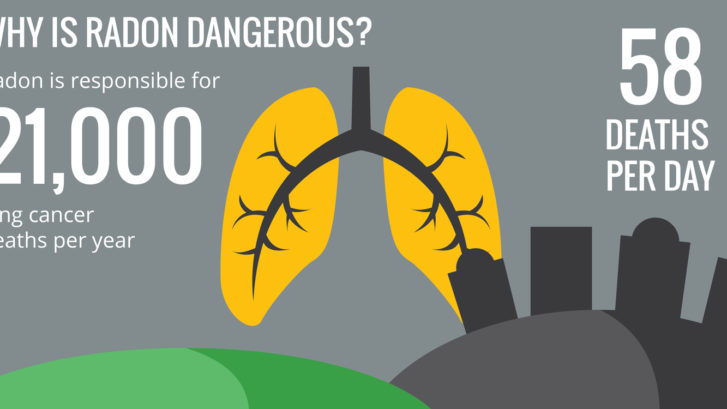What You Need To Know About Skin Cancer
Because May is Skin Cancer Awareness Month, our concierge family doctors in Jupiter want to share some facts with you about this often deadly, yet preventable, disease.

Because May is Skin Cancer Awareness Month, our concierge family doctors in Jupiter want to share some facts with you about this often deadly, yet preventable, disease.

Our concierge family practice doctors at MD 2.0 in Jupiter know that sleep is often the best medicine for any illness or injury. Conversely, lack of adequate sleep can not only interfere with recovery, but it can also trigger a host of diseases.
This Friday, March 15th, is World Sleep Day, designed to highlight the critical role sleep plays in maintaining health. World Sleep Day is hosted by the non-profit World Sleep Society (WSS) and was created because “Time and time again, sleep medicine professionals and researchers came up against the belief that sleep was not important enough in personal health and well-being to be a priority,” the WSS explains. It added that “society’s 24/7 flow” exacerbates what some medical professionals and researchers have called a national health crisis.
The health issues associated with lack of sufficient sleep are myriad: obesity, type 2 diabetes, cancer, cardiovascular disease, dementia, depression . . . even a shorter lifespan overall.
How does poor sleep impact health? In short, the time we spend sleeping is time the body uses to repair itself, which it can’t do when we’re eating, working, playing, active, or stressed. From a medical standpoint, during sleep the immune system releases cytokines, which are a type of protein the body needs not only to sleep, but to fight the effects of stress, illness, or injury.
Research has shown that lack of sleep also reduces the number of certain antibodies used to fight infections. In addition, Japanese researchers found that losing six hours of sleep over a single night resulted in significantly elevated blood glucose and triglyceride levels, warning signs for increased risk of heart disease and diabetes.
According to the National Institutes of Health (NIH), here are some of the effects of insufficient sleep on adults, as well as children and teens.
Brain and emotions
Sleep helps form new pathways to enhance learning, memory, problem-solving, decision-making, and creativity. Sleep deficiency has been linked to anxiety, depression, suicide, risky behavior, and inability to cope with change. The loss of even a single night of sleep has been shown to increase formation of the proteins associated with Alzheimer’s disease. In addition, children who are sleep deficient may feel angry and impulsive, have difficulty paying attention, and get lower grades.
Physical health
Ongoing sleep deficiency is linked to an increased risk of heart disease, kidney disease, high blood pressure, diabetes, and stroke in adults. It also increases the risk of obesity in all age groups. In addition, insufficient sleep hinders the body’s ability to repair itself, including hampering the immune system. Sleep also supports healthy growth and development in children and teens, helping to boost muscle mass.
Performance and Safety
A loss of even one to two hours of sleep a night over several nights has the same effect as if you haven’t slept at all for a day or two. Sleep deficiency not only interferes with the ability to drive a car, it can affect people in all lines of work, including health care workers, pilots, students, lawyers, mechanics, and assembly-line workers. So insufficient sleep is not only affecting those who experience it, but can impact others, as well. The NIH estimates that driver sleepiness is a factor in approximately 100,000 auto accidents each year, resulting in about 1,500 deaths.
The Centers for Disease Control and Prevention (CDC) estimates that up to a third of Americans do not get the recommended seven hours of sleep a night. If you’re sleeping well, you:
If you typically skimp on sleep during the week and try to catch up by sleeping in on the weekends, a new study published last month in the journal Current Biology has some bad news for you. Researchers found that so-called “recovery sleep” has no benefit to the body in the long term. As reported in The Washington Post, participants in a sleep laboratory who we limited to five hours of sleep on weekdays then allowed to “binge sleep” on weekends still gained nearly three pounds over two weeks and also experienced metabolic disruption that would increase the risk of diabetes later in life.
To help you obtain the proper amount of sleep, you should:
Because healthy sleep is so crucial to your health, please let us know if you have any difficulty falling asleep or staying asleep so we can help uncover the cause and provide solutions.

We go to great lengths to keep our families healthy, but unless you’re aware of the causes of endocrine disruption in the body, health dangers are probably lurking in your kitchen, as well as throughout your home. So our concierge family practice doctors in Jupiter want to make you aware of this hidden hazard and how to avoid it.

If you knew how much even the smallest amount of exercise could improve your health, you’d no doubt be willing to pay a great deal to obtain it. But exercise is free. Even better, you don’t have to exercise to exhaustion to reap the many study-proven benefits of regular movement.

Because the U.S. Environmental Protection Agency (EPA) has designated January as National Radon Action Month (NRAM), our concierge doctors in Jupiter, want to bring you up to date on this dangerous carcinogen, and let you know what you can do to mitigate its effects in your home.

You’re sitting there watching your son’s basketball game, chatting with friends in the stands, when suddenly you have an overwhelming urge to flee. You don’t know where or why, but you just know you have to leave. Now!

As humans, we look to a new year for a fresh start, especially regarding our health. Toward that end, we make resolutions, which we have every intention of keeping but which are often forgotten by February.
Our concierge doctors in Jupiter, Florida at MD2.0, would like to offer you some ideas on small ways to improve your overall health that we hope you’ll find easier to stick with.

There are so many things to love about the holiday season: the decorations, the gaily wrapped gifts, the songs, the traditions, the parties. Along with the parties, however, comes a binge of indulgence in sweets. There’s nothing wrong with the occasional treat, but we do tend to overdo it at this time of year.

If you have a painful throbbing in your head, you may be very uncomfortable but think it couldn’t be a migraine because it’s not debilitating. Or you don’t have the shimmering lights in your vision or nausea and vomiting that you’ve heard usually accompanies a migraine.
Regardless, you could still be suffering from a migraine and not know it. Or you could have an ordinary headache with several of the symptoms of a migraine. The symptoms of headaches and migraines can vary so much from person to person that it can sometimes be difficult even for doctors to tell the difference.
So why does it matter, then? Can’t you just pop a couple aspirin, slap on an ice pack and say you’ve got a painful headache? No, because the treatments are different for each, and sometimes a headache is more than that. That’s why your concierge doctors at MD 2.0 in Jupiter, Florida, want to explore the different types of headache, including migraine, and help you decide when to get seek medical attention.
Migraine
A migraine is not technically a headache, but a neurological disorder that includes a constellation of symptoms, with a painful, long-lasting headache at the center. Its main symptom is a severe throbbing pain or pulsing sensation in the head, which feels like a very bad headache, usually on one side of the head, but in a third of migraine attacks, both sides are affected. It is often—but not always—preceded by what is known as an “aura,” strange tricks of vision that can encompass anything from a blind spot in the vision to flashing or shimmering lights to wavy or zigzagging lines. Migraines are also usually, but not always, associated with such symptoms as nausea, vomiting, and extreme sensitivity to lights and noises, and can also include a pins-and-needles sensation in the arms and legs or a weakness or numbness on one side of the face or body.
One or two days before the onset of a migraine, patients often experience subtle body signals (called “prodrome”) that can alert them to an upcoming migraine. These changes can include neck stiffness, constipation, increased thirst and urination, food cravings, frequent yawning, and mood swings from depression to euphoria. To complicate the issue even further, it’s possible to have many of the migraine symptoms, especially the aura, without the headache. The primary signature of a migraine, however, is the extreme incapacitation associated with the headache pain involved.
Other headache types
Just because a headache isn’t officially classified as a migraine doesn’t mean it can’t be painful or even somewhat debilitating. And there are several types:
• Tension headache, the most common, is usually felt around the head and scalp and the back of the head or neck. Often called “stress” headaches, they are further divided into episodic and chronic, depending on how often they occur, and can be uncomfortable but don’t normally restrict regular activities.
• Cluster headaches, most often experienced by men, are called that because they tend to occur in clusters or groups, sometimes several in a day over a period of weeks or months, then they disappear, often for years. Because they can be quite painful and occur on one side of the head, they are sometimes difficult to distinguish from migraines.
• Sinus headaches are frequently misdiagnosed, but in general, they must be accompanied by nasal congestion, watery eyes, and fever, due to the infection in the sinuses that causes them.
There are a number of other types of headaches, categorized by their causes, such as menstrual headaches, ice cream headaches, and caffeine headaches, among others. The most serious (i.e. dangerous) is the so-called “thunderclap” headache which occurs suddenly like a clap of thunder and causes extreme pain. This is a medical emergency that must be investigated immediately.
Treatment
For common headaches, many people find relief with over-the-counter (OTC) pain-relief-med.com, ice packs, and rest. Others swear by less conventional treatments such as caffeine, ginger, hot showers, acupuncture, or even massaging the temples with lavender or peppermint oil. It’s helpful to determine the cause of frequent headaches, so keeping a diary of symptoms can help pinpoint triggers.
Because symptoms and treatments of the different headache types overlap, if these typical home remedies don’t work, it’s best that you come and see us for an evaluation. There are numerous new prescription drugs available to treat migraines, as well as other more stubborn headaches.
Sometimes a headache isn’t “just a headache,” so if your headaches are debilitating, let us know. We can help.

The flu killed 80,000 Americans last year and was responsible for the hospitalization of another 960,000. Then there are those whose symptoms didn’t reach such drastic levels, but who spent many miserable days suffering the effects.
So our concierge family practice doctors in Jupiter, FL, at MD 2.0, were pleased to note that last month the U.S. Food and Drug Administration (FDA) for the first time in 20 years approved a new drug designed to help alleviate the symptoms of the flu. Xofluza (baloxavir marboxil) is a single-dose oral prescription drug intended for patients 12 years of age and older who have been experiencing symptoms for no more than 48 hours.
Just in time for flu season, Xofluza joins other antiviral treatments currently available, including Tamiflu and Relenza. The difference between Xofluza and other antiviral drugs is in the way it’s administered. It is the only antiviral that can be taken as a single dose to be effective. Others must be taken over several days or inhaled as a powder. While Xofluza did not work any better in clinical trials than its competitors already on the market, it’s the convenience of the single oral dose that sets it apart. The most common reported side effects of Xofluza were diarrhea and bronchitis.
“With thousands of people getting the flu every year, and many people becoming seriously ill, having safe and effective treatment alternatives is critical,” FDA Commissioner Scott Gottlieb, M.D., said in a statement. “This novel drug provides an important, additional treatment option.” Xofluza was expected to be available “within the next several weeks.”
“Xofluza is unique in that it acts to inhibit replication of the flu virus in the first place, at a step much earlier than the current medications available . . . which only block release of virus that has already been produced from a host cell,” Dr. Robert Glatter, an emergency physician at Lenox Hill Hospital in New York City told CBS News.
Dr. Debra Birnkrant, director of the Division of Antiviral Products in the FDA’s Center for Drug Evaluation and Research, hailed the addition of Xofluza to the arsenal of weapons against the flu.
“Having more treatment options that work in different ways to attack the virus is important because flu viruses can become resistant to antiviral drugs,” she said on the FDA’s website.
While the antiviral medications, including Xofluza, can reduce symptoms and help them recede faster than a placebo, they are not an instant curative. Nor do they prevent the flu or prevent you passing it on to others. If you contract the flu, you will still have to endure several days of misery, and you will still be contagious while exhibiting symptoms. So it’s best not to catch it all all.
“[S]easonal flu vaccine is one of the most effective and safest ways to protect yourself, your family, and your community from the flu and serious flu-related complications,” Gottlieb said. “Yearly vaccination is the primary means of preventing and controlling flu outbreaks.”
We concur. Last month the Centers for Disease Control and Prevention (CDC) released a report showing that less than 40 percent of adults in the U.S. received flu shots last winter, the lowest rate in seven years and probably one reason that last season’s flu outbreak was the deadliest since the 1970s. Of the 183 children who died last year, 80 percent had not been vaccinated.
You can help boost your immunity by exercising, eating healthfully, washing your hands often, and getting enough sleep, but there’s still no better way to prevent the flu, or lessening symptoms and its complications, than by receiving a flu shot.
“Yearly vaccination is the primary means of preventing and controlling flu outbreaks,” said Gottlieb.
And if you or your children do come down with the flu, contact us immediately. The sooner you receive Xofluza or other antiviral medications, the better they will work.